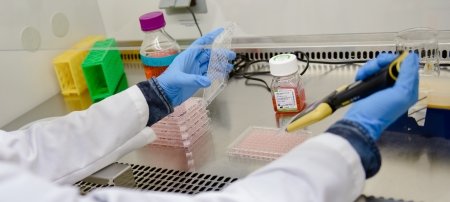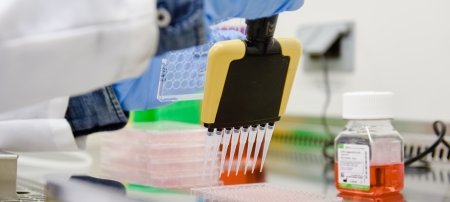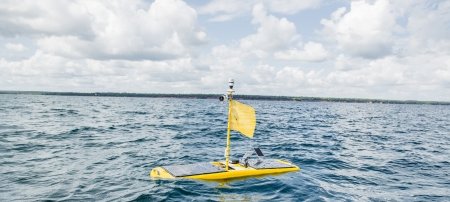The prestigious Faculty Early Career Development (CAREER) program recognizes junior faculty across the nation.
Awardees are the next generation of academic leaders. In 2015, three Michigan Tech faculty were honored with the award, which is administered by the National Science Foundation (NSF). Their projects are funded for five years, up to $500,000.
For fiscal year 2015, NSF Engineering granted 146 CAREER awards to 81 institutions in 36 states. Principal investigators of these awards are 29 percent women and 9 percent underrepresented minorities, according to available demographic data. These percentages are several points higher than for US engineering faculty overall.

Creating more accurate nutrient budgets and models to manage effects on nitrogen cycling
In the world of aquatic biology, it is a long-held belief that what goes up, must
come down. As human activity causes nitrogen loads to go up along the banks of rivers
and streams, nitrogen levels go down through another process. Amy Marcarelli, an associate
professor in biological sciences, and her team help create more accurate nitrogen
budgets and models that are needed to better understand and manage the human effects
on nitrogen cycling at both regional and global scales. "We want to evaluate a fundamental
disconnect with our conceptualization of the role of nitrogen fixation in rivers,"
Marcarelli explains. "Secondly, we want to integrate the nitrogen and other biogeochemical
cycles into instruction of undergraduate ecology."

Finding ways to remove viruses from water and bio-therapeutic drugs, purifying them
for vaccine production
If viruses had boots, they'd be shaking in them. Researcher Caryn Heldt, an assistant
professor of chemical engineering, tracks down viruses. She finds ways to remove them
from water and bio-therapeutic drugs, along with purifying viruses for vaccine production.
With the award, Heldt and her research group will be able to focus more on the chemistry
of virus surfaces to help develop better removal techniques. She focuses on technology
that is used to remove viruses, particularly for vaccines, which is not like fishing
a rogue bit of food out of a drinking glass. It's not even like purifying bacteria
in water. "Virus removal is more difficult than taking out bacteria; they are a lot
smaller, and sometimes they can be more chemically inert," Heldt says.

Taking autonomous vehicles to new heights (and deeper dives) than ever before
Autonomous vehicles can go where humans cannot. Some dive deep under the ocean, others
fly high in the sky. Some drones are being used to respond to disaster sites, like
the Nepal earthquake, as well as to power microgrids, to fly over battlefields, to
monitor climate change, and to observe underwater biodiversity. Nina Mahmoudian, an
assistant professor of mechanical engineering-engineering mechanics, focuses on the
continuous operation of autonomous vehicles. In other words, she is finding ways to
make these robots do their jobs longer with no human intervention. "Basically, what
we're looking at is creating a team of robots that recharge and maintain other robots,"
Mahmoudian says, explaining this is called continuous operation. She compares the
autonomous vehicle robots to a cell phone: With a limited battery charge, the battery
dies in the middle of a conversation—but imagine if a smaller machine could swoop
in and charge it. An autonomous vehicle's work, or a cell phone's call, could go on
uninterrupted.
Michigan Technological University is an R1 public research university founded in 1885 in Houghton, and is home to nearly 7,500 students from more than 60 countries around the world. Consistently ranked among the best universities in the country for return on investment, Michigan's flagship technological university offers more than 120 undergraduate and graduate degree programs in science and technology, engineering, computing, forestry, business, health professions, humanities, mathematics, social sciences, and the arts. The rural campus is situated just miles from Lake Superior in Michigan's Upper Peninsula, offering year-round opportunities for outdoor adventure.




